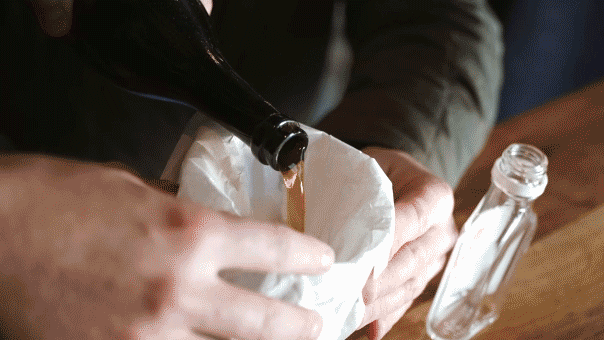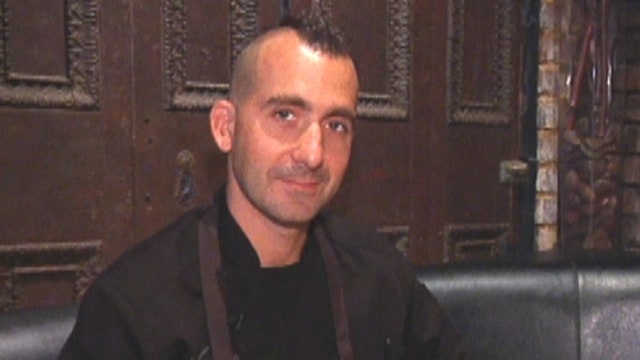Kitchen Superstars: Marc Forgione's secret
Chef Marc Forgione says it's not only what you serve, but how you do it
Marc Forgione is a chef who hit the big time young.
His acclaimed namesake restaurant in New York snagged a Michelin star when he was just 29 years old, and in the same year he won the Food Network cooking competition show “Next Iron Chef”.
But Forgione started his food journey long before that, as a young man while watching his father, acclaimed chef and James Beard Award winner Larry Forgione.
'what can we do with that without messing up, without being dishonest to the process here.'
Following in the footsteps of someone known as "The Godfather of American Cuisine" isn't easy, but Marc jumped in as a teenager.
"When I was 14 or 15 years old," Forgione remembers, "I'd go to my friends houses and we'd go to breakfast and I'd say, ‘Okay, where are your eggs,’ and they'd look at me like, 'you know how to make eggs?"
From there it was summers spent in the kitchen every year and then after college he worked at restaurants like New York’s BLT Prime, while also taking time to learn in France and Italy.
"It seems like it happened right away but when I opened my restaurant I was 29 and I had been cooking 'full time' since I was 17. That's 12 years," Forgione says of his early rise. "So I tell young kids all the time it’s not like you snap your fingers and you have your own restaurant, it was a lot of hard years."
In fact, he was considering selling his restaurant --and even had meeting lined up with a buyer --but two days before he got his first Michelin star.
Since then Restaurant Marc Forgione has received numerous accolades, and by 2012 Forgione became the youngest American chef to maintain a Michelin star for three consecutive years.
But today he is focused not only on his restaurant, but other New York ventures as well, like his steak restaurant American Cut and the Laotian spot Khe-Yo.
Despite the variety in styles, he says there is a common component that keeps all of the restaurants together.
"I like to describe our style as honest, very respectful of the ingredients and the people that get them to us, and what we do with it. We let the ingredients drive what we're doing and then we think, 'what can we do with that without messing up, without being dishonest to the process here.'"
It is a philosophy of running restaurants based on the ingredients he grew up loving, but with one additional perspective that he has gained over his many years in the business:
"If you just make people smile with what you do you'll be a successful restaurant."









































